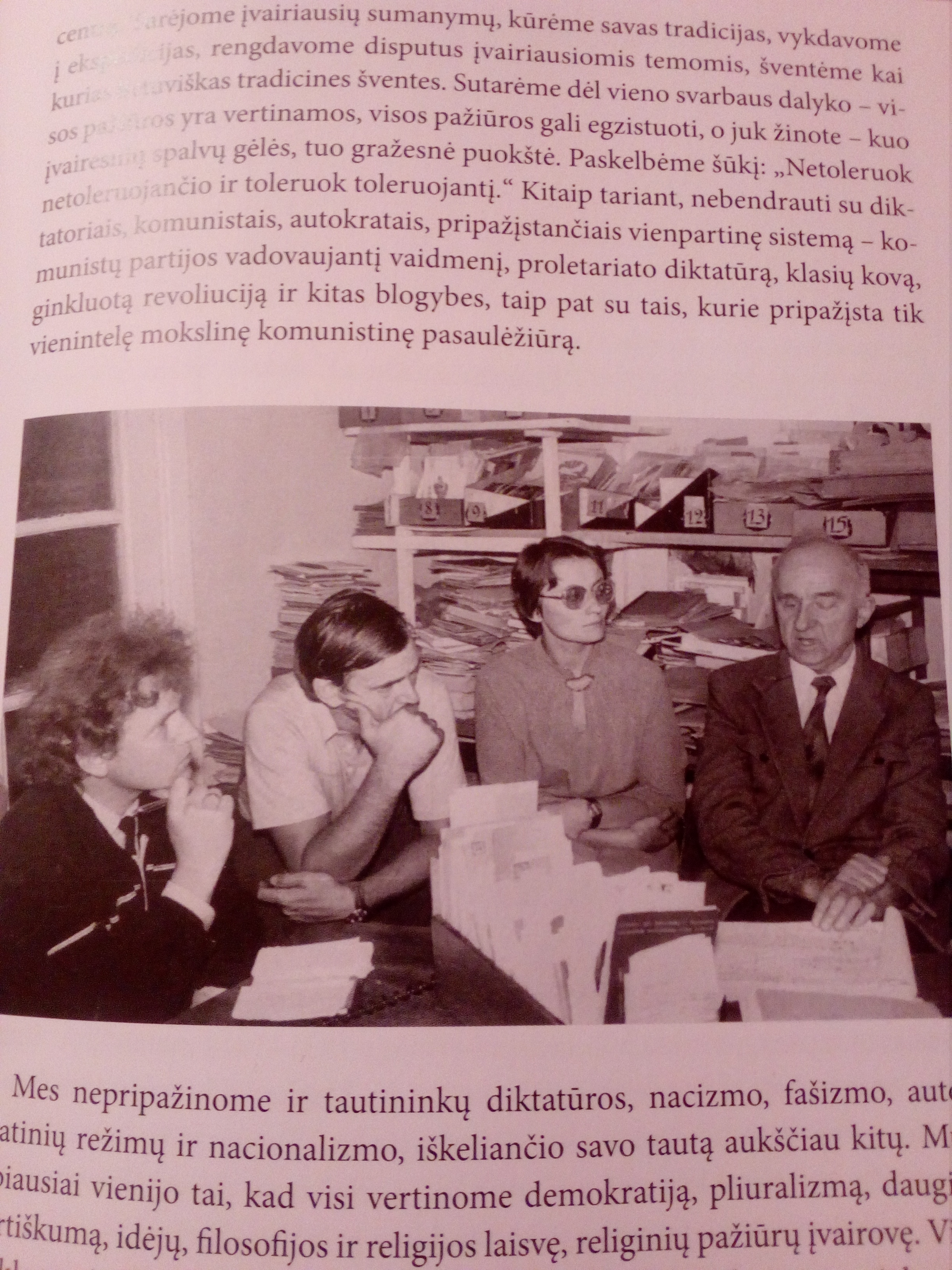The Strazdelis University was an underground university that operated in Lithuania in the 1970s. It was named after the Lithuanian poet and Catholic priest Antanas Strazdas (1760-1833, he signed his name Antoni Drazdowski in Polish, but the diminutive form Strazdelis is used here). The name Strazdelis was chosen by the founders of the university because of the reputation and image of Antanas Strazdas as being truly close to the peasants. While Antanas Strazdas was formally recognised as an artistic figure by the Soviet regime, the founders of the university used the image of Strazdelis because of his sensitive approach and empathy for the community, and his readiness to help ordinary people. Thus, the organisers of the university used the image of Strazdelis, the ‘Red priest’, in order to escape being accused by the regime of promoting the bourgeois, capitalist order, or nationalist feelings. Secondly, they applied Strazdelis’ agenda ‘to reach out to ordinary people’, promoting empathy, tolerance and the need for self-education.
The university was organised as a self-education community of humanist thought. The leader (the rector) of the university was a medical doctor, the oncologist Viktoras Kutorga (1920-1991). During the Nazi occupation of Lithuania, Kutorga participated actively in the anti-Nazi resistance, and rescued and hid Jews from arrests. Because of this, he himself was arrested and imprisoned in a Nazi concentration camp.
Kutorga tried to promote his ideas of pan-humanism. The aim of the Strazdelis University was to provide an alternative to Soviet education, organising and inspiring self-education in the humanities and the social sciences. Members of the university studied works by banned authors, lent each other books, and practised a humanist way of life. The university rejected dictatorship, Nazism, fascism, autocratic regimes and nationalism, and brought students together by promoting the values of democracy, pluralism, and freedom of thought.
Much attention was paid to ethnography and the study of Marx, interpreting his work in a different way to how Soviet ideology did. The Strazdelis University was the first step in anti-Soviet, non-Soviet action for a group of people who later, during the times of Sąjūdis (the Lithuanian national movement, 1988-1990), became activists and founders of modern political parties.
The university stopped its activities in 1981, because of the circumstances of that time. According to Vytenis Andriukaitis, one of the founders of the university, five years had passed since the beginning the university's activities, and members already had some of the knowledge they needed. The need to improve professional skills in members' jobs was also important. Participants in the university decided to expand their activities through other forms of anti-Soviet and non-Soviet actions, like establishing a network of underground libraries and organising meetings.

